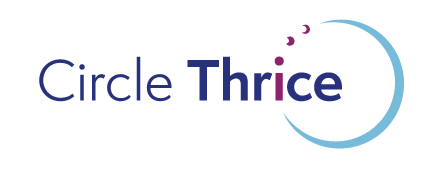I’d already been thinking about language and about the words we use to describe the things we want and don’t want in our lives. So I somehow wasn’t surprised to see some other online conversation about that same topic. And it’s an important topic. The words we use affect the way we think and, potentially, even what we allow ourselves to think. It also impacts the way we engage with the world and (to get a little new age sounding here) what we allow the world to give us.
That’s why I prefer the term “prosperity” to “wealth.” First, because prosperity is more action based. It can be easily verb-ized (you can prosper, but you can’t, I don’t know, weal?). That appeals to my proactive, planning heart. Second, the term is more egalitarian, suggesting that it’s something that you are building (a prosperous business, a prosperous farm) rather than something that you already have (coming from a wealthy family). Wealth is often used as code for inherited or embedded access to resources, which implies that if you don’t already have it, you can’t get it. Prosperity on the other hand, is something that you can create.
Third, prosperity is extra-capitalist. That is, it potentially means having money, but it can also mean other possibilities for thriving as well. So a prosperous family can have money, but it might also have land or community connections or resources outside of capitalist, currency based ones. A prosperous farm doesn’t mean that the farmer has three BMWs. It could mean that the land is fecund and provides everything the farm needs. Finally, prosperity suggests well-being, health, and happiness in additional to a level of financial thriving. Wealth doesn’t have the same implications.
Another term I have been thinking about and trying to incorporate into my personal lexicon is “plenty.” Plenty is an interesting word because it means both “many” and “enough.” Plenty of time means having lots of time AND enough time. Yet, unlike the word enough, plenty suggests abundance and well-being. It’s not a scarcity mindset word. Enough has a suggestion of denial or limit (OK, you’ve had enough now!). Compare “we have enough for dinner” with “we have plenty for dinner.” Plenty also has some very specific imagery “a time of plenty” “the plenty that comes with peace” that has to do with abundance and happiness.
Plenty also doesn’t mean “way too much.” We have plenty means we have some for us and some to share, but it doesn’t mean we have ALL OF IT. It’s not a greedy word.
One of the reasons this has been on my mind is that we continue to struggle with living in very challenging times. So what do we really want for ourselves and our households? Well, I certainly want prosperity, but I also want PLENTY. And when I think of what I want plenty of, well, it’s an interesting list. I want plenty of:
- Nutritious and delicious food
- Social engagement
- Intellectual stimulation
- Rain and sunshine
- Flowers
- Love and happiness
- and yeah, Money (I got bills, I want to pay them)
When I come from a position of thinking of my household in terms of prosperity and plenty, I find that it frees me consider more options and make decisions more wisely than I do it I think purely about CA$$$$H. And that’s true even though, living in a capitalist society as we do, cash is something that we do need.
The terms we use to talk about and think about our lives are important. They help us picture, and hence create, the life we want.

